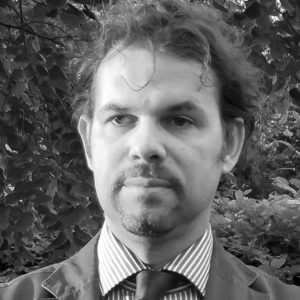Max Gottschlich on the limits of knowledge

Max Gottschlich
A few months ago, I came across what for most people other than professional philosophers would be an obscure, academic essay on Kant in the journal Metaphysics from 2015. I stumbled onto it after skimming through some art criticism online and finding a phrase about “Kant’s theories on the limitations of logic.” This intrigued me; anything about the limits of human reasoning draws my attention, but especially in relation to this foremost German critic of human reason, who also happened to be the fellow who established the philosophical framework for the reliability of the scientific method. So I Googled “Kant on the limits of logic” and this essay topped the list of hits. The title of the paper almost sounded like a Monty Python parody of Continental philosophy: “The Necessity and Limits of Kant’s Transcendental Logic, with Reference to Nietzsche and Hegel.” Yet the content of the paper has held my interest, off and on, for months.
I have reread Gottschlich many times, and though I’m still bemused by a few passages toward the end, the essay strikes me as both a useful explication of what Kant was doing in his philosophy and also a way of putting logical reasoning into proper perspective. All of which has a bearing on what visual art can do outside the scope of what Kant was exploring. The quietly radical implications of all this probably wouldn’t bother those who think science is the last word on truth—but it should. In other words, it’s an effort that seems at least partly consonant with Heidegger’s own critical views on the entirety of Western thought and the nihilism at the heart of it.
Max Gottschlich, the essay’s author, starts by pointing out that Kant sets aside metaphysics—all the theories of truth that have arisen in Western philosophy since the Greeks. Instead, he examines, in The Critique of Pure Reason, only the marriage between logic and the knowledge it offers. Instead of postulating an ontology—a theory of being—he shows how the system of logic gives form to the manifold world of sensory experience and thus give rise to our understanding of a world that operates by natural laws. All other forms of awareness are set aside in this process. What the world or anything in it actually is remains beside the point–and unknowable through logic. Logical understanding—transcendental logic as it is called in the essay—provides the superstructure within which all individual things become comprehensible within this ordered world of appearances.
Kant no longer undertakes the inquiry into being and its determinations, but more fundamentally asks about the conditions of the possibility of knowledge of objects in general.
It’s pertinent to note that logic isn’t only the ground for scientific investigation, but also provides the structure of computer software and artificial intelligence, as well as an individual’s common sense problem-solving in daily life. Logic itself is reshaping our entire world–it’s what rules the spirit of our age. Gottschlich wants to understand how this sort of knowledge functions as a whole. For him, Kant isn’t interested, per se, in particular operations of formal logic, as a computer engineer would be, but in the role that logical understanding and knowledge play in forming the boundaries of thought and human awareness. He aims to think about how logic structures knowledge, how it generates it, rather than about how the rules of formal logic lead to particular valid propositions that can be proven.
He points out that Western philosophy perennially begins with the identification of thinking and being: it is taken for granted that rational thought is how we come to unveil the being of things and the world. Thought corresponds with the world in reliable ways—and the goal of much philosophy has been to propose a theory, a metaphysics, to explain how and why this is so. Until Kant, the author says, philosophy assumed an equivalence between thinking and being. In this view, the actual being of an object in the world, what it is, reveals itself through its intelligibility—it becomes transparent to thought. If you think in a logical, non-contradictory way about the world, it has been assumed you will arrive at an understanding of the world’s inherent nature. To achieve this consistent, non-contradictory realm of thought—and being—much of Western philosophy has situated truth somehow apart from this changing, imperfect world: Plato’s realm of Forms or Ideas, for example. Continue reading ‘Max Gottschlich on the limits of knowledge’